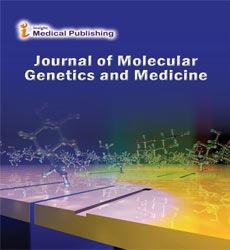Interaction of Obese FTO gene with CRISPR-Cas 9 system
Received: May 10, 2022; Accepted: May 14, 2022; Published: May 18, 2022
Abstract
Obesity is one of complex human disorders that acts as a carrier of various metabolic and hormonal diseases. According to a report by WHO, 4 million obese individuals die every year when estimated on global level. Several mechanisms were decoded for molecular working of obese genes present in the DNA but none of them was visually clear. Obesity is a consequence of several factors like Leptin, Insulin, AgRp and Adiponectin and many others that work closely with hypothalamus associated with central nervous system. The hypothalamus is rendered as the powerhouse of the balances created regarding the exchange of stored energy or controlling the obesity in humans. Obesity may be either monogenic or polygenic, both of them leading to complex disorders. In terms of severity, monogenic form is difficult to study because it involves much complex network of genes of melanocortin receptor pathway intermediates. Reportedly, spontaneous mutations occurring at a particular site within the human genome results in a multifactorial disorder like obesity. The degree of occurrence is usually low. Amongst all these genes, FTO is known to play important role. It is thought to increase the appetite of individual thus ultimately attracts obesity. This weight stimulating molecule is one of the largest obese genes of our human genome estimated to be 400 kilobases, in mixture of several appetite stimulators and inhibitors. This gene is located on chromosome 16 of genome. This causative gene for obesity can be repaired with the help of CRISPR Cas 9 technology. CRISPR Cas 9 has become a powerful weapon for treating many severe disorders ranging from genetic diseases like Alzheimer disease, Fragile X syndrome to diseases such as cancer. Although, several bioinformatics software have been developed for manipulating human genome but none can show precision like CRISPR Cas 9 system. Previously, it has been applied to obesity but the results obtained weren’t satisfactory. This study aims to utilize CRISPR Cas 9 molecule that will specifically target the neurological cells with FTO gene present in hypothalamus region of brain. The cells will be cultured outside under appropriate aseptic conditions and the defective areas of gene will be cured by the Cas 9 molecule thus leaving behind a functional molecule that will regulate the body weight in an appropriate manner as all the defective parts of gene will be edited by this technology. This study can further prospect new therapeutic developments with regard to obesity.
Open Access Journals
- Aquaculture & Veterinary Science
- Chemistry & Chemical Sciences
- Clinical Sciences
- Engineering
- General Science
- Genetics & Molecular Biology
- Health Care & Nursing
- Immunology & Microbiology
- Materials Science
- Mathematics & Physics
- Medical Sciences
- Neurology & Psychiatry
- Oncology & Cancer Science
- Pharmaceutical Sciences
